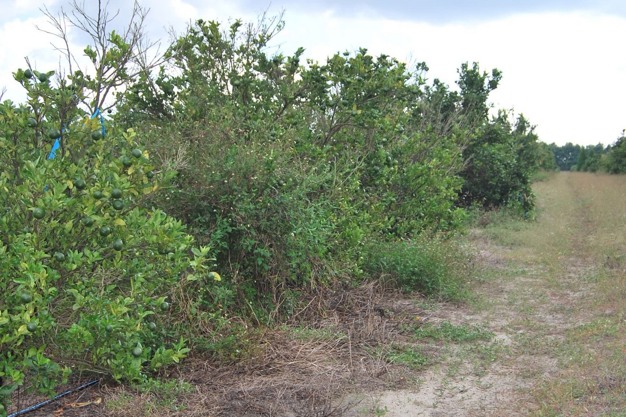South Africa does not have HLB, commonly known as Asian Citrus Greening. Recently, a different and less harmful strain of citrus greening called African Citrus Greening was detected in backyard trees in a city in the Eastern Cape Province, which was incorrectly reported in the media as HLB. "Recently, there has been some confusion and misinformation regarding reports that HLB has been identified in South Africa. It has not," states Justin Chadwick, CEO of the Citrus Growers' Association of Southern Africa.

This categorical statement from South Africa follows after widespread and "incorrect media reports", which the CGA says led to the false accusations by the Spanish Citrus Management Committee (CGC). The CGC sees the different three forms of citrus greening, namely the Asian, African and American, as HLB.
According to Chadwick there is a clear scientific difference between African Citrus Greening and HLB (Huanglongbing or Asian Citrus Greening, and sometimes casually referred to as Yellow Dragon), which is a citrus disease that has caused devastation in some citrus producing regions like Florida in the USA and parts of Brazil. It is not present in South Africa, the country's citrus growers organisation confirmed, noting that it is important to point this out and to clear up the misleading statements that are damaging to the industry.
HLB and African Citrus greening are different
After the detection of African Greening in backyard trees in Gqeberha, South Africa's Department of Agriculture (DALRRD) and Citrus Research International (CRI) have taken action. As part of this action, it was decided to raise awareness in the City and surrounding area. Chadwick says a local newspaper in South Africa's Eastern Cape correctly reported on 20 May, 2024 that the disease African Citrus Greening was detected near the city of Gqeberha. "However, other media channels falsely spread news that HLB and not African Citrus Greening was identified near Gqeberha. This is incorrect. African Citrus Greening is caused by an entirely different species of bacteria, and it is a citrus disease that is not nearly as damaging as HLB."
He says, the alarmist reactions and misrepresentation of facts were started by a reefer information news snippet that was erroneous. The Spanish organisation used this incorrect report to issue their statements.
"HLB does not occur in South Africa. African Citrus Greening, on the other hand, has been reported in South Africa since 1932. This Greening is under official control in South Africa by preventing movement of propagation material from Greening areas to Greening-free areas. This Greening cannot be spread by fruit or seed and there is no restriction on the movement of citrus fruit, and this applies worldwide. To date, the Eastern Cape Province was Greening-free and the recent find in Gqeberha will require further delimitation surveys and control measures (control of the insect vector and infected plant material) to successfully prevent spread to commercial citrus production areas," explains Chadwick.
The CGA has responded to different international trade media to withdraw the article and to publish the correct information. The South Africans have also written to the Spanish CGC, "requiring the CGC to remove the three articles from their website and to issue an apology for accusations of lying and for acting irresponsibly and causing damage to the South African citrus industry and impacting governments' reputation."
South African industry sources say: "This is an illustration of the Spanish CGC's position of not letting the truth stand in the way of a good story. There are no controls in the organisation, and it has, in many cases, published fake news. They are fixated on getting South Africa out of the EU market – and will act irresponsibly in this quest."
For more information:
Justin Chadwick
Citrus Growers Association
Email: [email protected]
